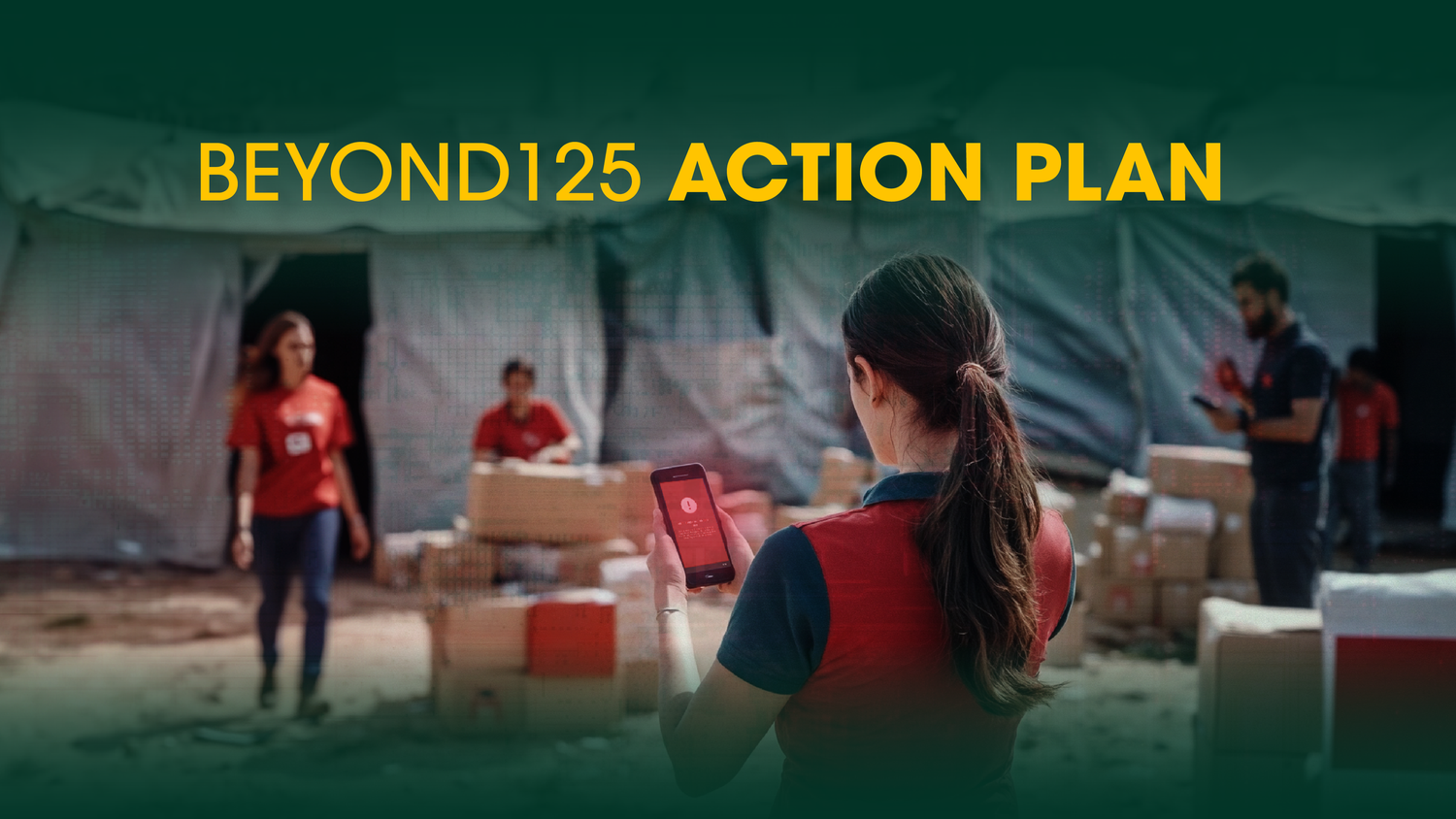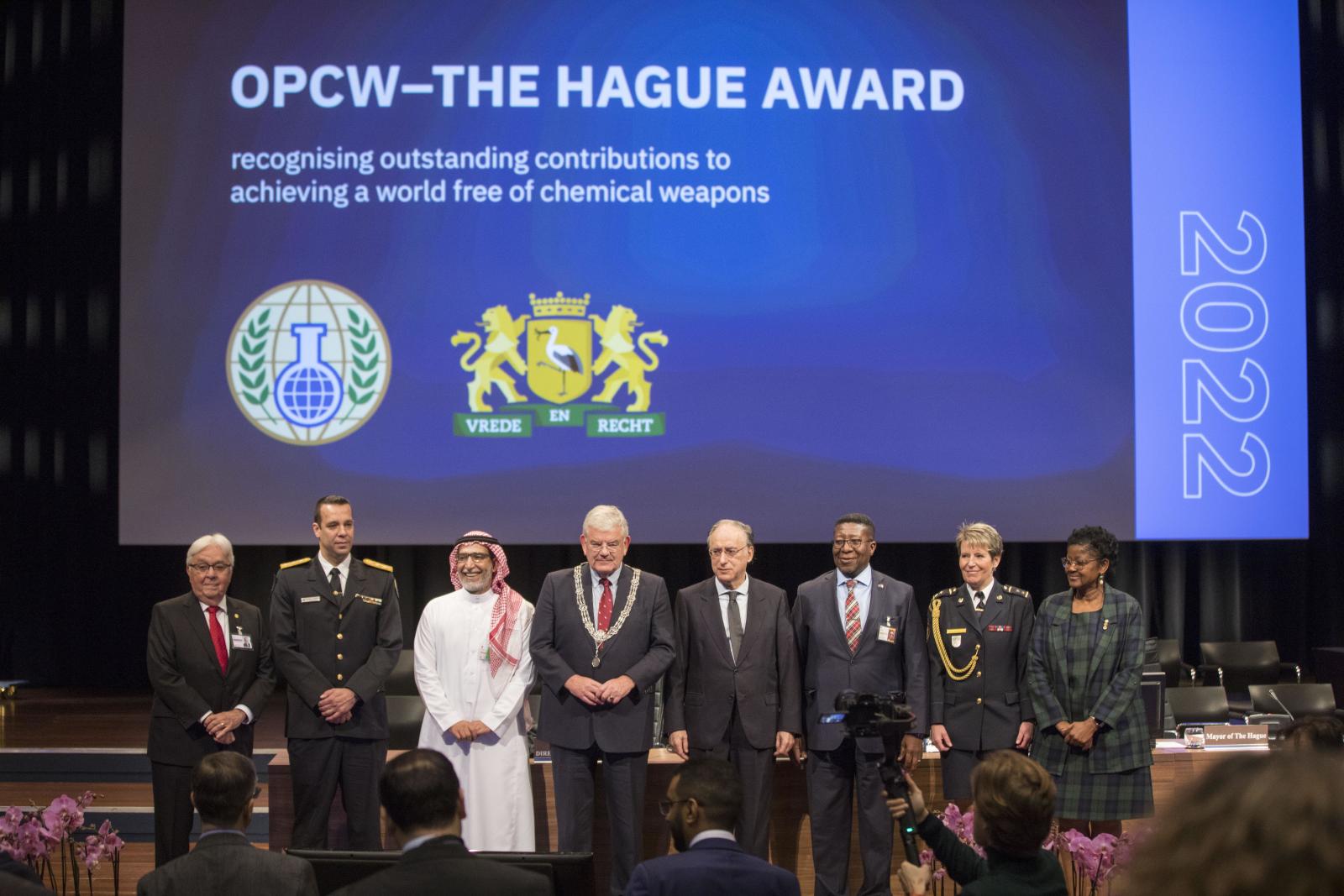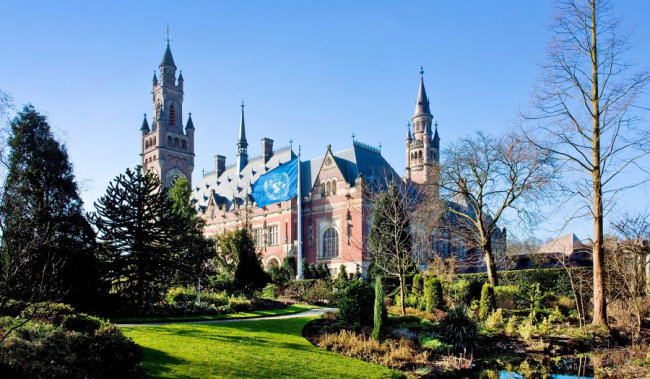UPDATED - The choice of the city for the meeting was no coincidence. In 2024, The Hague celebrated its 125th anniversary as a city of peace and justice. The first global peace Peace Conference was held in 1899, a milestone that put The Hague on the map as city of peace and justice.
The theme of the 2024 UCLG World Council is: 'A New Peace Agenda for Future Generations'. In that light, the municipality of The Hague, together with the Association of Netherlands Municipalities (VNG), organised sessions to further discuss the crucial role of local governments in promoting peace and dialogue.
To inform these conversations, they presented the Hague Charter for Municipal Peace - an inspiring framework for local governments to take the lead in peacebuilding, conflict prevention and the promotion of inclusive societies.
Promoting security and access to justice
This Charter builds on the principles of key international frameworks such as the 2030 Agenda and the Sustainable Development Goals, the New Urban Agenda and the United Nations Future Summit, the UCLG Peace Prize and forums such as the Conference of City Diplomacy (2008, The Hague) and the Forum of Cities and Territories of Peace.
The Hague Charter on Municipal Peace recognizes the key role of cities and territories in building a more peaceful, just, and inclusive world. Peace is much more than the absence of war; by addressing the root causes of violence, fostering social integration, and promoting participatory governance, cities can lead the creation of peaceful communities. Municipalities are well-positioned to promote security and access to justice, although in many cases, authority may lie at other levels of government.
City diplomacy and decentralized cooperation contribute to strengthening solidarity and sustainable peace between regions and countries. Cities and territories know their own contexts, realities and populations. They have the capacity to find innovative solutions for coexistence and partner with civil society, business community, NGOs, citizens initiatives and a long list of actors. By engaging all stakeholders and fostering partnerships with public and private actors, and multi-level dialogue, cities can improve conflict prevention and peacebuilding.
During the conference, the Mayor of The Hague, Jan van Zanen, took over the chairmanship of the UCLG from Uğur İbrahim Altay, Mayor of Konya in Turkey.
The Hague: city of peace and justice
For over 125 years, The Hague has been a center for conflict resolution and international cooperation, home to key institutions like the Peace Palace, the International Criminal Court (ICC) and the International Court of Justice.
As the host of the UCLG World Council 2024, The Hague continues its long-standing tradition of fostering city diplomacy and peacebuilding. In 2005, the Municipal Alliance for Peace was established here, and in 2008, the city hosted the first international conference on city diplomacy. In September 2024, in collaboration with the CyberPeace Institute and the Global Cyber Alliance, the Hague organized the Beyond125 conference —further solidifying the city's commitment to peace and justice.
About UCLG
Local governments, often the closest to their citizens, are directly impacted by global events. This makes them crucial actors in addressing challenges like climate change, migration and security. At UCLG, cities share experiences and learn from one another on how to tackle these issues.
The members of United Cities and Local Government (UCLG) represent 5 billion people across the world, 70% of the world’s total population. The network covers over 240.000 towns, cities, regions and metropolises and over 175 associations of local and regional governments in 140 countries. Read more>
About the UCLG World Council 2024
The World Council is the principal policy-making body of the World Organization. Composed of 342 members from all UCLG Sections, it meets once a year to decide the World Organization’s policies and ensure that general policies are implemented.
The 2024 edition of the World Council is organized in The Hague, Netherlands, at the invitation of the Mayor of The Hague and Member of UCLG Executive Presidency, Mr. Jan van Zanen, in cooperation with VNG. Under the theme “A New Peace Agenda for Future Generations”, the World Council sees the traditional statutory track, primarily designed for members officially appointed to the corresponding bodies. It will also see a track dedicated to the UCLG Municipal Peace Talks, as well as two open Policy Debates. Read more>
More about the International City of Peace and Justice

Securing our World's Digital Future
Beyond 125 Years: Securing Our World’s Digital Future is a call to action, closely aligned with Sustainable Development Goal 16, to provide access to justice for all and build effective, accountable and inclusive institutions at all levels.

OPCW-The Hague Award
The Organisation for the Prohibition of Chemical Weapons (OPCW) was awarded the Nobel Peace Prize in 2013 in recognition of its extensive efforts to eliminate chemical weapons.
To honour this achievement, the OPCW established the OPCW-The Hague Award in 2014 in partnership with the Municipality of The Hague.
The Permanent Court of Arbitration
The Permanent Court of Arbitration, established by treaty in 1899, is an intergovernmental organization providing a variety of dispute resolution services to the international community.
